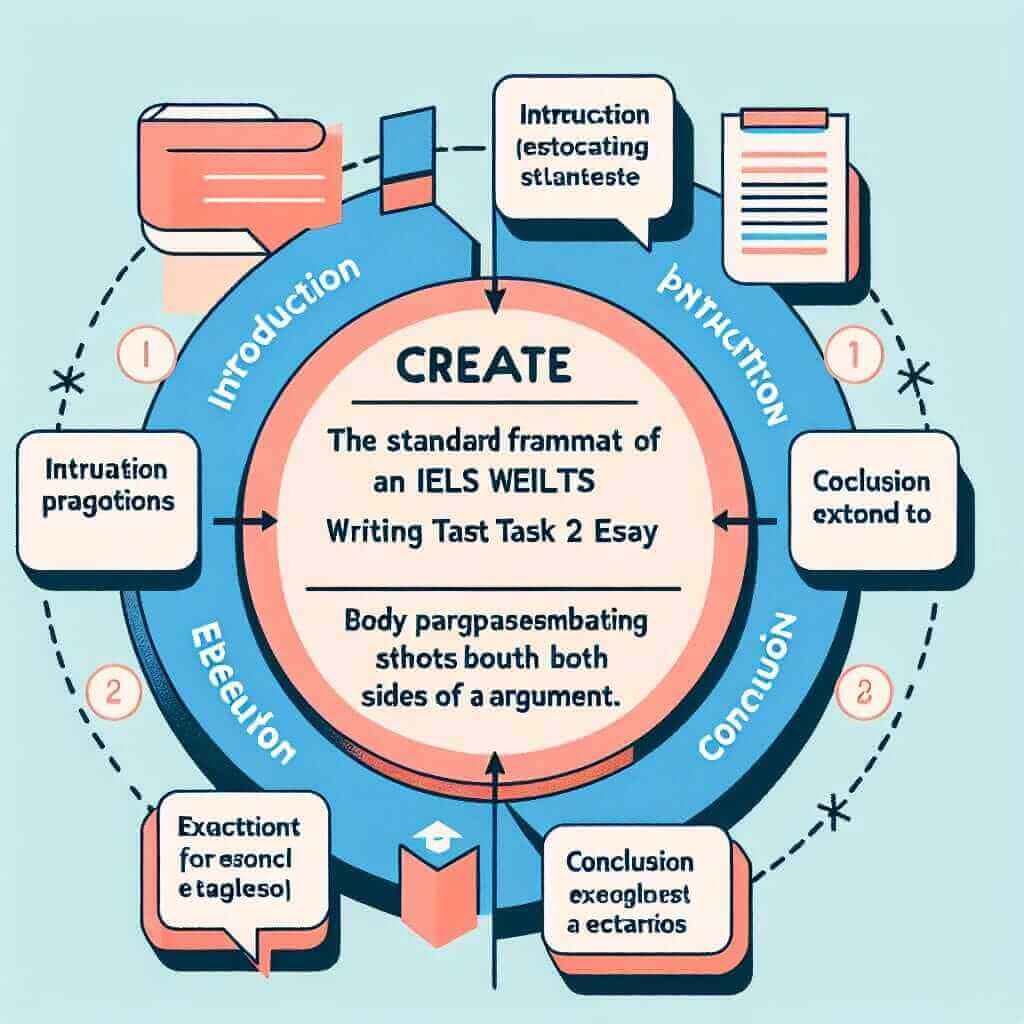IELTS Writing Task 2 is a critical component of the IELTS examination, requiring candidates to produce a well-structured essay in response to a given prompt. A robust argument development is essential for scoring high in this section. This article explores effective strategies to improve argument development, providing clear explanations, practical examples, and actionable tactics to excel.
Understanding Argument Development in IELTS Task 2
What is Argument Development?
Argument development in IELTS Task 2 refers to the ability to present and support ideas coherently and cohesively. It involves constructing a clear thesis, substantiating it with relevant evidence, and articulating arguments logically across multiple paragraphs.
Why is it Important?
A well-developed argument:
- Demonstrates your critical thinking
- Shows your ability to organize ideas logically
- Enhances coherence and cohesion in your essay
Key Strategies to Develop Strong Arguments
Constructing a Clear Thesis Statement
The thesis statement is the essay’s central idea, guiding the argument. A strong thesis should be specific and debatable.
Example:
Prompt: “Some people believe that government should invest in arts and culture. Others think that this is a waste of money. Discuss both views and give your opinion.”
Weak Thesis:
“Both investing in arts and culture and not investing in it have their pros and cons.”
Strong Thesis:
“Government investment in arts and culture is essential as it fosters national identity and stimulates economic growth, despite arguments suggesting more pressing priorities in other sectors.”
Structuring Your Essay
A well-structured essay is easier to follow and showcases your ability to organize thoughts.
Typical Structure:
- Introduction
- Body Paragraph 1 (Present argument for one side)
- Body Paragraph 2 (Present argument for the other side)
- Body Paragraph 3 (Your opinion or further analysis)
- Conclusion
Developing Body Paragraphs
Each body paragraph should focus on a single idea, supported by evidence and examples.
Example:
- Topic Sentence: Government funding in arts preserves cultural heritage.
- Explanation: Historic sites and traditional arts receive the necessary funding to survive.
- Example: The restoration of the Colosseum in Rome preserves an iconic piece of history that draws millions of tourists each year.
- Link Back to Thesis: Therefore, investing in the arts not only preserves cultural identity but also benefits the economy through tourism.
Using Connectors and Cohesive Devices
Connectors ensure a smooth flow of ideas. Use these strategically to enhance coherence.
Examples:
- For addition: Furthermore, Moreover
- For contrast: However, On the other hand
- For cause/effect: Therefore, Consequently

Common Mistakes and How to Avoid Them
Over-Generalization
Mistake: “All governments should only focus on arts.”
Correct Approach: “While some governments prioritize arts due to their cultural significance, others might need to allocate funds to more urgent areas such as healthcare and education.”
Irrelevant Details
Mistake: Including information that doesn’t support your argument.
Correct Approach: Only include details that directly strengthen your thesis.
Lack of Evidence
Mistake: Generalizing without supporting arguments.
Correct Approach: Use specific examples, statistics, or expert opinions to substantiate claims.
Practicing Argument Development
Practice Prompts
- “Some people think that the best way to increase road safety is to increase the minimum legal age for driving cars or riding motorbikes. To what extent do you agree or disagree?”
- “In some countries, young people are encouraged to work or travel for a year between finishing high school and starting university studies. Discuss the advantages and disadvantages for young people who decide to do this.”
Exercises
- Thesis Crafting:
- Develop a strong thesis for the prompts above.
- Outline Creation:
- Create a detailed essay outline including main ideas and supporting evidence.
- Writing Practice:
- Write full essays based on your outlines, focusing on coherent argument development.
Conclusion
Improving your argument development in IELTS Task 2 requires a clear understanding of thesis creation, logical structuring, and the use of cohesive devices. By avoiding common mistakes and practicing regularly with real prompts, you can enhance your writing skills and achieve a higher IELTS score. Remember, practice and regular feedback are key to mastering the art of argument development.
For more resources and practice materials, explore other articles on IELTS.NET. Feel free to leave a comment, share your experience, or ask questions – your engagement helps us provide more tailored content to support your learning journey.